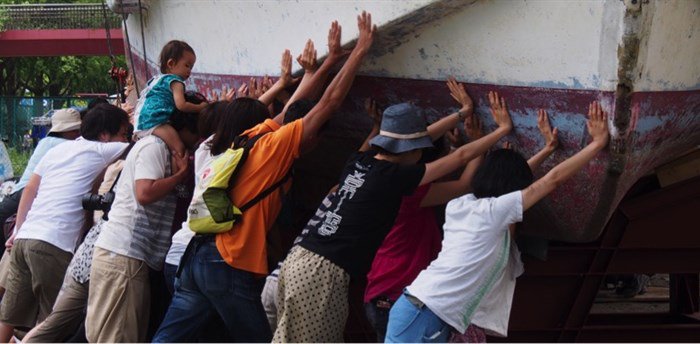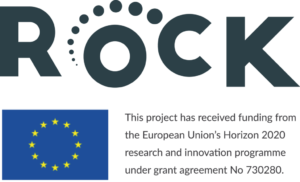Events

- This event has passed.
Webinar: Participatory approaches and social inclusion in cultural heritage
October 3, 2019 @ 2:00 pm - 3:30 pm

Watch the webinar here:
Marvila Interpretive Centre:Presented by Roberto Falanga, Postdoc Research Fellow, Institute of Social Sciences, University of Lisbon and Alexandra Anibal, Interpretive Centre manager, Câmara Municipal de Lisboa
Through the ROCK project, the Lisbon municipality is investing in the creation of a living lab to approach local urban issues by engaging local communities. The Interpretive Centre is being created in the Marvila’s Library through a participatory approach in which the local community (residents, local institutions, entities with local intervention) is called to participate actively. Its main objective is to gather knowledge about the cultural, material and immaterial patrimony of the neighbourhood, making it available to the public in an appealing, playful and innovative way, encouraging the direct participation of communities.
Participatory budgeting for youth: Presented by András Farkas, Strategist at PONT Group, Cluj-Napoca. Thinker in Youth Participation Think Tank.
Participatory Budgeting is a process of democratic deliberation and decision-making, in which ordinary people decide how to allocate part of a municipal or public budget. Participatory budgets are a powerful tool for inclusive and accountable governance. They allow cities and towns to educate, engage, and empower their citizens along with strengthening their governance. We will look in particular at the Cluj-Napoca’ case, the first participatory budgeting for youth process in Romania.
Casa del Quartiere: Presented by Giulia Cerrato, Communication officer at the Casa del Quartiere network
Turin decided to look and get inspired by what was happening in its neighbourhoods. With the network of public spaces Casa del Quartiere, associations, citizens and artistic and cultural operators are working together to transform abandoned structures and vacant land and foster community spirit and the creation of social enterprises.
Agenda:
- General introduction to the webinar (5’), Cécile Houpert, EUROCITIES
- Introduction (10’): what do we mean by participatory approaches and why is it important for local authorities? Cécile Houpert, EUROCITIES
- Two practices from ROCK cities:
- Lisbon (15’): Marvila Interpretive Centre, Roberto Falanga, Postdoc Research Fellow, Institute of Social Sciences, University of Lisbon and Alexandra Anibal, Interpretive Centre manager, Câmara Municipal de Lisboa
- Cluj-Napoca (15’): Participatory budgeting for youth, András Farkas, Strategist at PONT Group, Cluj-Napoca. Thinker in Youth Participation Think Tank
- Turin (15’): Casa del Quartiere, Giulia Cerrato, Communication officer at the Casa del Quartiere network
- Main learning points, key considerations, transferability tips (5’) Cécile Houpert, EUROCITIES
- Q&A with the audience (20’)
- Conclusion (5’) Cécile Houpert, EUROCITIES
When joining the discussion on social media, please use the following tags and handles:
#SocialInclusion / #CommunityEngagement / #CulturalHeritage
@ROCK_H2020 / @JuliesBicycle
This webinar is part of the EU Horizon 2020 ROCK project. This project has received funding from the European Union’s Horizon 2020 research and innovation programme under grant agreement No 730280.

Booking for this event has now closed.
